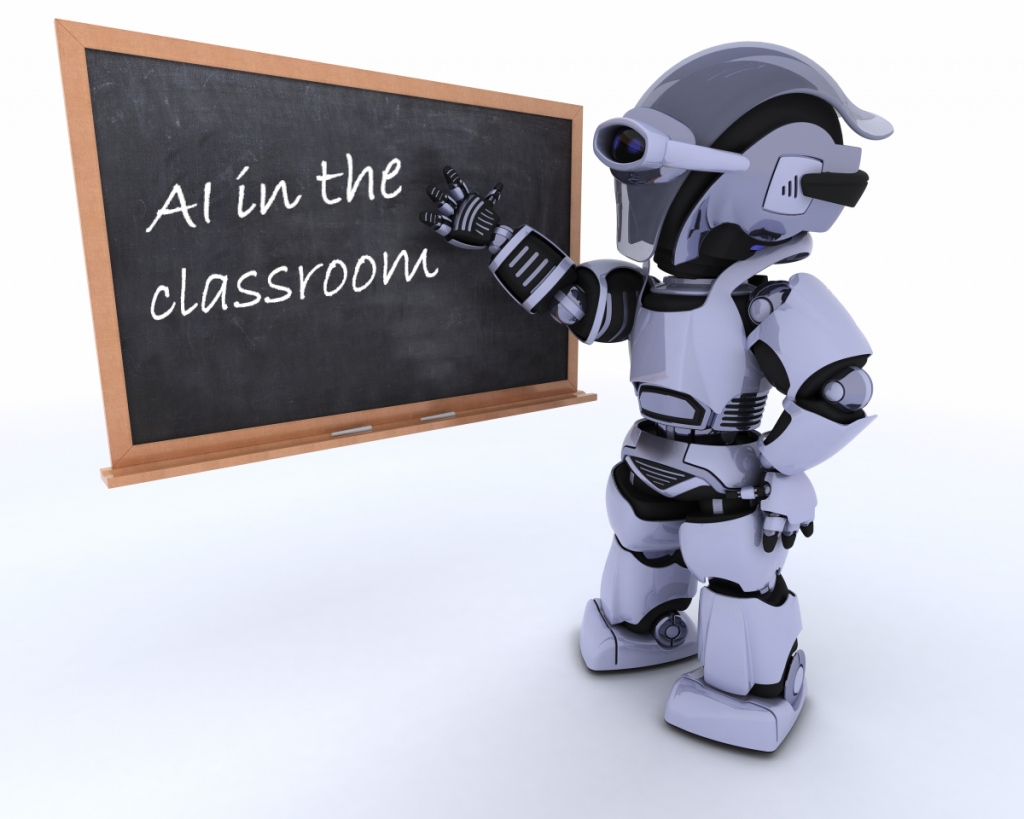I don’t think it’s hyperbole to state the future of the planet rests on the shoulders of an educated population. The late Kofi Annan, who served as Secretary General of the United Nations, once stated, “Knowledge is power. Information is liberating. Education is the premise of progress, in every society, in every family.” As the world becomes more technologically advanced, education needs to keep pace. One would think the educational community would welcome new technologies to help strengthen academic endeavors. Nevertheless, there are discussions about what role technology should play in the educational arena. Sebastien Turbot (@sturbot), Executive Director at New Cities Foundation, writes, “With children increasingly using tablets and coding becoming part of national curricula around the world, technology is becoming an integral part of classrooms, just like chalk and blackboards.”[1] At the same time, Nellie Bowles (@NellieBowles) writes, “A wariness that has been slowly brewing is turning into a regionwide consensus: The benefits of screens as a learning tool are overblown, and the risks for addiction and stunting development seem high.”[2] The value of computers in the hands of students is not the only question being discussed within educational circles. People are also pondering what role technologies like artificial intelligence (AI) should play.
AI in the classroom
Turbot reports, “[A study published] by Pearson deciphers how artificial intelligence will positively transform education in the coming years. Per the report’s authors, ‘The future offers the potential of even greater tools and supports. Imagine lifelong learning companions powered by AI that can accompany and support individual learners throughout their studies — in and beyond school — or new forms of assessment that measure learning while it is taking place, shaping the learning experience in real time.” Most articles I’ve read believe AI will play an important and positive role in education in the years ahead. Matthew Lynch, an educational consultant and owner of Lynch Consulting Group, LLC, writes, “Artificial intelligence has already transformed the face of learning in a major way. It’s continuously opening new doors that lead to increased productivity, more successful students, and a lower cost for the public-school system.”[3] He admits the application of AI in education remains in its nascent stage, but he suggests three ways AI can help advance education. They are:
Helping teachers take a break from menial tasks. “The fact is,” Lynch writes, “that teachers spend a large percentage of their off-hours attempting to keep up with the piles of student papers. Grades have to be submitted in order to determine how students are keeping up with the coursework. Generating new lessons and materials often falls by the wayside during the struggle to stay on top of this never-ending chore. Artificial intelligence can take over some of these grading tasks and simplify the process. Even essays may soon be graded using artificial intelligence. This can save valuable time and give educators the space they need to create better lessons for their classroom.” Having AI take over grading tasks of subjective material is controversial because humans remain a better judge of creativity than machines. Nevertheless, Lynch’s point that teachers need a break is an important one. Teagan Carlson, a former high school language arts teacher, reports, “A recent survey conducted by the Nevada State Education Association revealed that half of the teachers polled are considering leaving the profession in part because they’re overworked. Three-quarters of the teachers polled responded that they don’t have enough time to prepare for their jobs during the workday and 21 percent of them spend more than 15 hours outside of their workday to prep.”[4] Finding ways for AI to relieve teachers of some activities could be helpful.
Helping set more realistic student goals. “One of the major assets of artificial intelligence,” Lynch writes, “is the ability to personalize a student’s academic needs. Every child will learn at a different pace and in a different way. Artificial intelligence can easily encompass all of these learning styles and provide a customized plan for each student. Along with this plan, the programs can help to craft more specific and realistic goals for students.” This approach is often referred to as blended learning. Elizabeth Mann Levesque (@elizkmann), a former Nonresident Fellow at the Brookings Institution, explains, “Blended learning, defined as ‘the strategic integration of in-person learning with technology to enable real-time data use, personalized instruction, and mastery-based progression,’ uses emerging technology to help teachers personalize education for individual students. This approach is generally known as personalized learning. Studies have found that personalized learning is a promising approach, although implementation challenges remain.”[5]
Identifying curriculum gaps. According to Lynch, “Most teachers have a difficult time uncovering which areas of their lessons aren’t comprehensive enough. Oftentimes, students walk away from the lessons with many asking the exact same questions again and again. It’s clear that some aspects of a given course may need to change to accommodate student learning. AI could help educators to spot these gaps more clearly.”
Jenny Anderson (@jandersonQZ) points out another way AI can be used to improve teaching: Evaluating teaching methods. She explains, “There is a long-standing, red-hot debate in educational circles about the most effective way to teach kids. Some favor more traditional teacher-directed methods, with the teacher presenting materials and responding to questions about it. Others advocate for inquiry-based learning — where students drive their own learning through discovery and exploration, working with peers and developing their own ideas — arguing it results in deeper, and more meaningful learning. … McKinsey applied machine learning to the world’s largest student database to try and come up with a more scientific answer. The bottom line: A mixture of the two methods is best, but between the two, teacher-directed came out stronger.”[6]
Concluding thoughts
With AI permeating so many aspects of our lives, it’s probably inevitable that AI will penetrate the educational sector as well. Per Thomas Arnett, an author at the Christensen Institute, observes, “Rather than seeing technological progress as a threat, teachers and education leaders should take advantage of the many ways technology can enhance their work.”[7] That won’t be as easy as Arnett makes it sound. Kristin Houser explains, “Convincing parents, teachers, and students to embrace AI in education will be the real challenge. Some may be biased against the technology for fear it will leave them unemployed, while others may have a hard time shaking thoughts of the doomsday scenarios posited by tech luminaries such as Elon Musk and Stephen Hawking.” The fact remains, AI can help personalize education in ways teachers cannot simply because teachers have a finite amount of time to deal individually with students. An AI system has no such time constraints. Turbot admits, “AI and ed-tech are not a panacea for systemic challenges. AI may not be end up being the next giant leap in education and they will of course bring their own set of problems and disadvantages. But let’s not ignore their inherent strengths that could help address the glaring gaps in teaching and learning, that we have been struggling to fill for decades.”
Footnotes
[1] Sebastien Turbot, “Artificial Intelligence In Education: Don’t Ignore It, Harness It!” Forbes, 22 August 2017.
[2] Nellie Bowles, “A Dark Consensus About Screens and Kids Begins to Emerge in Silicon Valley,” The New York Times, 26 October 2018. For a further discussion, see: Stephen DeAngelis, “Mobile Technology in Education: Is the Devil in the Screen rather than the Details?” Enterra Insights, 11 January 2019.
[3] Matthew Lynch, “How Artificial Intelligence Is Already Transforming Education,” Education Week, 14 March 2018.
[4] Teagan Carlson, “Here’s Why Teachers Adopt New Tech — and Why They Don’t,” EdSurge, 29 may 2019.
[5] Elizabeth Mann Levesque, “The role of AI in education and the changing US workforce,” The Brookings Institution, 18 October 2018.
[6] Jenny Anderson, “McKinsey used machine learning to discover the best way to teach science,” Quartz, 5 October 2017.
[7] Turbot, op. cit.
[8] Kristin Houser, “The Solution to Our Education Crisis Might be AI,” Futurism, 11 December 2017.





